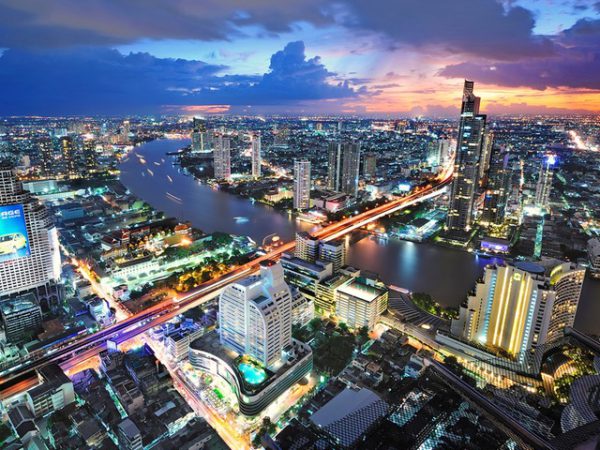BANGKOK, 18 September 2020: A proposal to encourage long-stay visits and begin the process of opening Thailand to leisure travel passed its first hurdle with the Thai cabinet approving a “special tourist visa” 15 September.
Targeting a launch in October long-stay visitors could apply for a 90-day visa that could be extended twice giving them a maximum of a nine months stay (270 days).

The project has merit but not to the extent, government officials claim. They say the long-stay visa scheme could attract up to 1,200 travellers per month or 14,400 travellers over one year.
Private sector tourism experts point out that in 2019 the country’s monthly tourist arrivals averaged 3 million visits. The average daily tourist spend was around THB5,200 or THB156,000 per person, per month. They argue that even with 14,400 visits over one-year long-stay travel would remain a drop in the ocean when you consider Thailand attracted 39.8 million visits last year.
According to Thai government calculations, 1,200 long-stay tourists visiting Thailand each month, would generate THB1.2 billion in monthly revenue or THB1 million per visitor, per month. The main targets are Chinese travellers and in the Tourism Authority of Thailand’s 2020 China market study, the daily spend averages at THB5,173, which would give the country an estimated monthly revenue of THB186,255,000, on a turnover of 1,200 visitors or THB155,190 per single visitor each month, way off the optimistic earnings estimated by the government. The bottom line is that very few tourists if any would spend a million baht a month in Thailand.
But there is merit in encouraging long-stay visitors with a visa that extends to nine months and costs a maximum of THB6,000 when compared to the one-year retirement visa (THB800,000 held in the bank) and a spouse visa (THB 400,000 in the bank). It will fill a gap between short-term tourist arrivals and the retiree and spouses markets that generate year-round foreign exchange.
The scheme, if it survives scrutiny by the country’s powerful Centre for Covid-19 Surveillance Administration, will encourage long-stay visitors who are interested in escaping the northern hemisphere winter (China, Japan, South Korea and Europe) possibly renting an apartment for six to nine months November through to April.
For the present, the standard 60-day tourist visa, that costs THB1,250, is not on the table as long as the Covid-19 pandemic remains a threat. The proposed special tourist visa would cost THB2,000 for 90 days and comes with the option of two 90-day extensions at THB2,000 each to give a maximum stay of nine months.
The special tourist visa for foreign tourists has some strict requirements.
They include a mandatory 14-day quarantine in hotels authorised to offer Alternative Local State Quarantine that costs between THB40,000 to as much as THB200,000 depending on the standard and location of the hotel selected.
The long-stay visitor must provide evidence of long-term residency in Thailand or a copy of ownership of an apartment or condominium belonging to foreigners or family members of foreigners.
A copy of a rental license or a deposit payment for the purchase of apartment, condominium, or house would be accepted.
They must buy Covid-19 insurance cover valued at USD100,000 and have undergone Covid-19 testing before departing and during the quarantine period.
A consortium of insurance companies in Thailand is offering online purchases with prices linked to whether the country of residence is a Covid-19 high or low risk. It is likely to average around THB10,000 to 14,000 for nine months cover.
The special tourist visa concession will initially apply until 30 September 2021 and then be reviewed.
Thailand authorities are floating various options to restart tourism in a safe manner that meet public health considerations. The so-called Phuket Model proposed flying tourists direct to Phuket on charters to holiday in a safe bubble on Phuket island. It failed to pass CCSA and public hearing scrutiny on the island. More schemes will hatch, but private sector tourism experts warn many of them will be impractical and unacceptable to travellers. Short of opening the doors to leisure travellers without a 14-day quarantine, none of the proposals will be able to guarantee an adequate flow of international tourists to ensure private tourism and hospitality enterprises can survive in the long term. The travel industry is convinced borders should open and robust Covid-19 testing should be in place on arrival in order to shorten or do away with the mandatory 14-day quarantine. Opponents say that is too risky.








This is going to do little to help many businesses and livelishoods that are hanging by a thread here in Thailand and neighbouring countries. Please share Ken Scott’s video Plea to Thai PM. Thai border closures heavily impact neighbouring countries. The more Ken’s video is shared the more likely the PM and his team will see it.: Open Thailand’s Borders https://facebook.com/watch/?v=1972542192901244&extid=mIeEVQcWiu5zzxgE